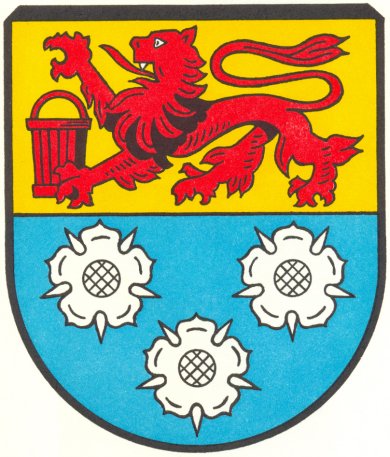Rheinhausen (Duisburg): Difference between revisions
Jump to navigation
Jump to search
Knorrepoes (talk | contribs) m (Text replacement - "{| class="wikitable"↵|+Official blazon↵|-↵|'''German'''↵| ↵|-↵|'''English''' ↵| {{blazon wanted}}↵|}" to "{| class="wikitable" |+Official blazon |- |'''German''' | blazon wanted |- |'''English''' | blazon wanted |}") |
Knorrepoes (talk | contribs) m (Text replacement - "{{de1}}" to "{{de}}") |
||
| Line 27: | Line 27: | ||
{{ | {{de}} | ||
{{media1}} | {{media1}} | ||
Revision as of 12:35, 25 July 2023
RHEINHAUSEN
State : Nordrhein-Westfalen
District (Kreis) : Duisburg (until 1974 Moers)
Incorporated into : 1974 Duisburg
| German | blazon wanted |
| English | blazon wanted |
Origin/meaning
The arms were officially granted on February 20, 1935.
The arms a re based on the arms of the Lords of Friemersheim (Vrymersheim), who originated from the area. The local seal showed already in the 14th century the lion and three roses of the Friemersheim arms. The family also had estates in what is now the Netherlands, their arms are also used as the arms of <a href=s/sintodil|Sint Odiliënberg]]. The bucket (Eimer) was added to the arms as a canting symbol for the town of Hochemmerich.
Literature: Stadler, 1964-1971, 8 volumes.
This page is part of the German heraldry portal Deutsche Wappensammlung |
Heraldry of the World |
|
German heraldry:
|
Selected collector's items from Germany:
|


